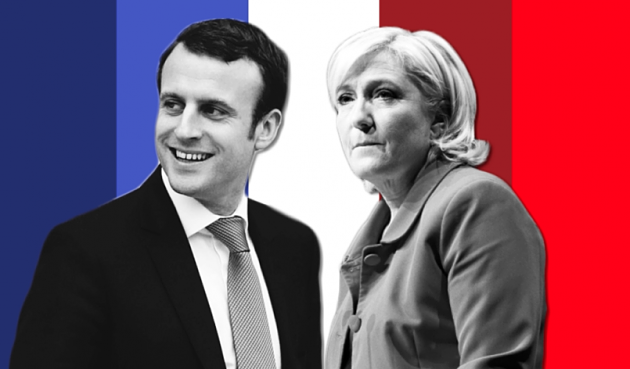In the recent presidential election in France, Emmanuel Macron positioned himself as a respectable alternative to the extremist Marine Le Pen. But do their views really differ, at least when it comes to Muslims? Yes, it must be admitted that on the principle of choosing the lesser of two evils, Macron was preferable to Le Pen for Muslims because he did not support her most odious Islamophobic proposals, such as a total ban on wearing the hijab in all public places or a total ban on the halal meat industry.
But Macron has shown that the lesser evil is still evil, especially in the days when it was most evident. Let’s remember that just the day before yesterday, a mosque in the French city of Bayonne was subjected to an armed attack (https://golosislama.com/news.php?id=37442). It did not surprise many that the attacker was a former candidate in local elections for Le Pen’s National Rally, whose leader was quick to condemn the crime and demand the harshest punishment for the perpetrator.
What was surprising was that Macron chose these very days to launch an attack on “political Islam” that supposedly threatens the secular foundations of France. He did so yesterday during a meeting with representatives of the French Council of Muslims.
“We are talking about people who, under the guise of religion, are pursuing the project of ‘political Islam,’ which wants to separate itself from our Republic,” Macron defined the threat. But what exactly is this infamous “political Islam”? Let’s recall that Macron’s government officials – Interior Minister Gérald Darmanin and Secretary of State Marlène Schiappa – earlier accused a native French woman named Maryam Pougetoux of promoting this same “political Islam” simply because she gave an interview while wearing a hijab as a representative of the French Student Council (https://golosislama.com/news.php?id=34637).
So how does Macron now perceive the threat of “political Islam”? According to him, there are people running in the upcoming local elections who are “trying to turn entire neighborhoods into areas where people live according to Sharia law. But what does that mean? Are they proposing to impose a mandatory Sharia dress code on everyone there? To lash and stone adulterers? Or at least ban the sale of alcohol (as in Finland, for example)? Of course not, because in that case they would quickly be disqualified from the elections and prosecuted.
And since this does not happen, judging by the precedent of Maryam Pougetoux, it can be assumed that their “political Islam” simply means that they do not hide their religious affiliation. Or that they want to create more comfortable living conditions for their constituents, for example by removing idiotic restrictions such as the wearing of the hijab in schools and government institutions, or by offering a choice of dishes on their menus where Muslims often deliberately do not have the opportunity to eat while adhering to the tenets of their religion.
All these legitimate aspirations, Macron calls the dangerous term “communitarianism” (the protection of the interests of different communities) and declares it a threat to the “Republic” in France. Well, what can we say – such threats as their “republic”. For example, the American republic was initially founded on the coexistence of different communities and diasporas, which maintained a considerable autonomy in their way of life while delegating their representatives to politics. The same happens in Great Britain, Australia, the English-speaking part of Canada, that is, mainly in the so-called Anglo-Saxon world. In France, on the other hand, the “republic” was initially founded on unity and, unlike the above-mentioned countries which respect their religious foundations, on anticlericalism. It was precisely this, Jacobinism, that inspired its Russian followers, the Bolsheviks, who also built their “republic” on these foundations.
It is not surprising that with the significant influx of people into France who have different cultures and ways of life because their countries were previously turned into colonies with them as subjects, this “republic” is now facing a challenge in the form of “communitarianism”. What is this challenge? It means that it is losing its former appearance. But it was inevitable when it agreed to accept them and even invited them (as cheap labor). In this sense, Le Pen is much more consistent – she opposes both “communitarianism” and immigration, while Macron, while supporting the latter, calls for a fight against the former, without understanding that the one arises from the other.
From this perspective, one can look at Macron’s statement from the opposite end – just as he claims that communitarianism is a threat to the “republic,” the republic, in its dominant Jacobin understanding, is also a threat to communitarianism, that is, to the real France that already exists but that it refuses to recognize. And this applies not only to Muslims (among whom there are already many indigenous French) – according to Macron’s logic, if a community of “white” Catholics or Protestants wanted to settle in a neighborhood or abandoned village, set up their schools and businesses there, and elect their representatives to the local council, these people would also be labeled as “communitarians” who threaten the “republic”.

